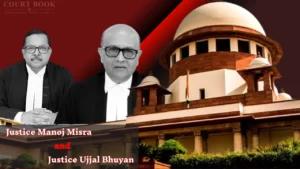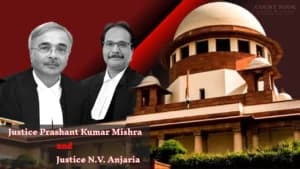In a significant ruling on October 13, 2025, the Gujarat High Court set aside the preventive detention order against Kapil Kanaiyalal Agrawal, who had been detained under the Prevention of Illicit Traffic in Narcotic Drugs and Psychotropic Substances Act, 1988 (PIT-NDPS). The bench, comprising Justice Ilesh J. Vora and Justice P.M. Raval, found that the authorities had failed to establish a genuine threat to public order, a crucial requirement under the Act.
Background
The petitioner, detained on September 20 (executed on September 21), 2025, by the Director General of Police, C.I.D. Crime & Railways, Gujarat, challenged the order's legality. His counsel, Mr. V.O. Joshi, argued that the detention stemmed from two earlier NDPS cases filed in 2020 and 2024 at Gorva Police Station, Vadodara - cases that, according to him, did not justify preventive custody.
Joshi emphasized that the alleged offences related purely to law and order, not public order, and therefore did not meet the threshold required for preventive detention.
"Registration of offences alone," he submitted, "cannot be said to have either affected or likely to affect the maintenance of public order."
On the other hand, Additional Public Prosecutor Utkarsh Sharma contended that the detenue was a habitual offender whose conduct had adversely affected the society at large. He argued that such repeated illegal activities warranted the preventive step to avoid further harm to the community.
Court's Observations
After carefully hearing both sides, the court zeroed in on a pivotal legal distinction - the difference between law and order and public order. This difference, the bench said, had been clarified long ago by the Supreme Court in Pushkar Mukherjee vs. State of West Bengal (1969) and Piyush Kantilal Mehta vs. Commissioner of Police, Ahmedabad (1989).
Quoting from the apex court's earlier verdict, Justice Vora noted,
"Every act of assault or injury to specific persons does not lead to public disorder. When two people quarrel inside a house, it is disorder, not public disorder." He added that public order is affected only when the even tempo of community life is disturbed.
The bench also criticized the Detaining Authority for assuming that two FIRs were sufficient proof of a threat to public order.
"On the basis of two criminal cases, the authority has wrongly arrived at the subjective satisfaction that the activities of the detenue were prejudicial to public order," the court said.
Referring again to precedent, the judges highlighted that preventive detention cannot be justified unless there is a real and demonstrable impact on the broader community.
"A mere disturbance of law and order leading to disorder," the bench reiterated, "is not necessarily sufficient for action under a preventive detention Act."
Decision
Finding the detention order legally unsustainable, the High Court concluded that the material before the authority did not establish that Agrawal’s alleged acts had either affected or were likely to affect public order.
"The subjective satisfaction arrived at by the detaining authority," Justice Vora said, "cannot be said to be legal, valid, or in accordance with law."
Consequently, the bench quashed the detention order dated September 20 (21), 2025, and directed that the detenue be set at liberty forthwith, if not required in any other case.
The courtroom atmosphere was relatively calm as the judgment was read out. Observers noted that the bench’s firm emphasis on constitutional safeguards against misuse of preventive detention laws served as a reminder of the fine line between necessary state control and individual liberty.
The order, delivered orally, reaffirmed the principle that preventive detention is an exceptional measure, not a routine tool of policing.
Case Details: Kapil Kanaiyalal Agrawal v. State of Gujarat
Case Type & Number: R/Special Criminal Application No. 13764 of 2025
Date of Judgment: October 13, 2025
Appearance
- For the Petitioner: Mr. V.O. Joshi, Advocate (5883)
- For the Respondent-State: Mr. Utkarsh Sharma, Additional Public Prosecutor














